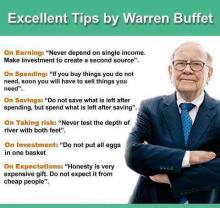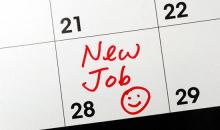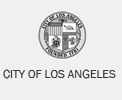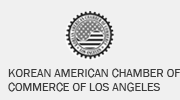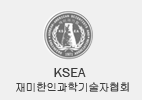Approximately 1.6 million students in the U.S. graduated from college this year. Some are going into their post-college job search with an extensive resume, while others have no experience whatsoever.
It doesn't matter where you fall on the spectrum, as long as your resume catches the recruiter's attention and makes a great first impression in the six seconds they spend reviewing it.
To get a clearer picture of what makes a resume stand out, we asked Amanda Augustine, a career expert at TheLadders, an online job-matching service for professionals, to create a sample of an excellent one for a recent grad with some work experience.
While your resume may look different, depending on the industry you're in, the one below should serve as a useful guide for new college grads:
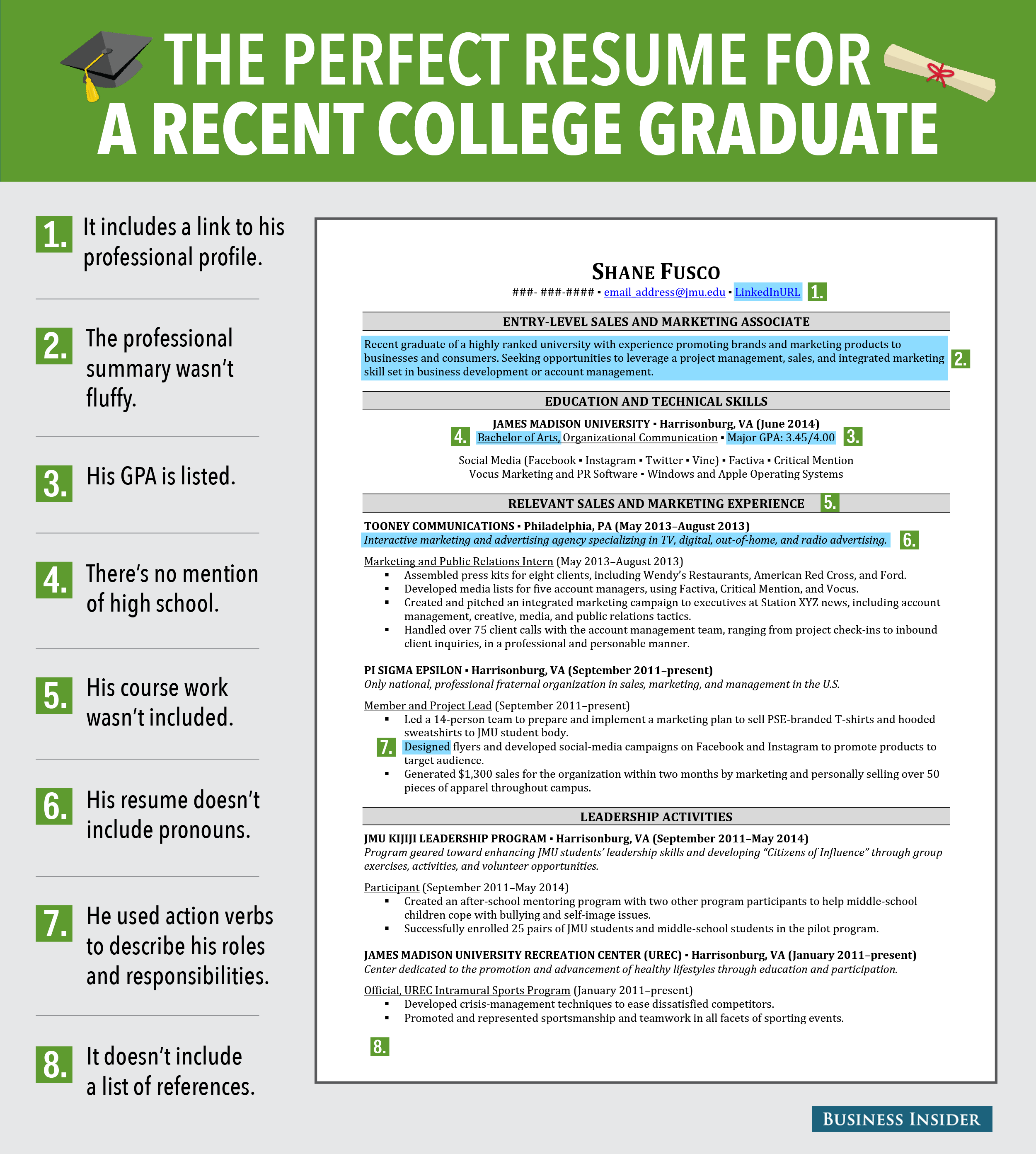
What makes this an excellent resume for a recent grad? Augustine outlines the following reasons:
1. It includes a link to his professional profile.
All recent graduates should have at least one profile established for their professional brand, she says. "Those who plan to work in a more creative field should develop an online portfolio and list the link to that site on their resume as part of their contact information." If you're concerned about employers finding your personal profiles, increase the security settings or consider changing the account name on your personal accounts to your first and middle name, so they won't be associated with your professional brand.
2. The professional summary isn't fluffy.
While it can be tempting to throw a few buzzwords such as "proactive" and "motivated" into a professional summary, recruiters know these terms are mere fluff and won't be impressed when they see them, says Augustine. "Don't tell employers that you're a great team player; explain how your team was able to improve a process, increase alumni donations, or received acknowledgment from the school for their exemplary volunteer work."
3. His GPA is listed.
The general rule of thumb is that if your GPA is above a 3.0, then you should include it in your entry-level resume, she explains. If the GPA in your major is higher than your overall GPA, use that instead. "Anything below a 3.0 should not be included on your resume. However, be aware that recruiters know why you didn't include the GPA and may ask you about it during the interview process."
4. There's no mention of high school.
Employers want to know what you've done lately, not what you accomplished four years ago or more, before you went to college. "Focus on highlighting your activities, accomplishments, and the work experience that took place during your college career, calling special attention to anything that directly supports your job goals," Augustine says.
5. His course work isn't included.
Since this job seeker has relevant internship experience and other extracurricular activities that demonstrate his sales and marketing skills, there's no reason to note that he has taken "Intro to Communication" or "Principles of Marketing." "In addition, this knowledge is implied in his new degree in communications," she says. "If you don't have any relevant experience from your internships or other activities on or off campus, you may need to include a list of relevant courses you've taken." However, she suggests sticking to the higher-level classes since no one wants to see "Intro to Finance" on the resume of an aspiring financial planner.
6. It doesn't use pronouns.
"While there is some debate among talent acquisition professionals these days about the need to add a more personal tone to resumes, the generally accepted practice is to refrain from referring to yourself in the first person with pronouns such as 'I' or 'me,'" explains Augustine. "Similarly, don't use pronouns or your name to talk about yourself in the third person (i.e. 'Shane is a recent graduate,' or, 'He is seeking opportunities to…')."
7. He used action verbs to describe his roles and responsibilities.
Did you notice how each of the bullets under Shane's roles begins with an action verb? "They don't mention what Shane was 'responsible for' doing; instead, the focus is on what he has accomplished and how he contributed to an end result," she says. "When you're new to the workforce, you may not have many major accomplishments and contributions to include in your resume; however, you can use action verbs, like 'created,' 'led,' 'managed,' 'improved,' 'developed,' and 'built' to describe your activities."
8. It doesn't include a list of references.
Cut "References available upon request" from your resume. "As an entry-level professional you only get one page of resume real estate, so don't waste it with this information," Augustine says. "Employers usually don't ask for this information until you're called in for a face-to-face interview, and they know you'll provide it if they request it."
Written By Jacquelyn Smith & Skye Gould
Article Source: http://www.businessinsider.com/excellent-resume-for-recent-grad-2014-7#ixzz39dDGrk5d





